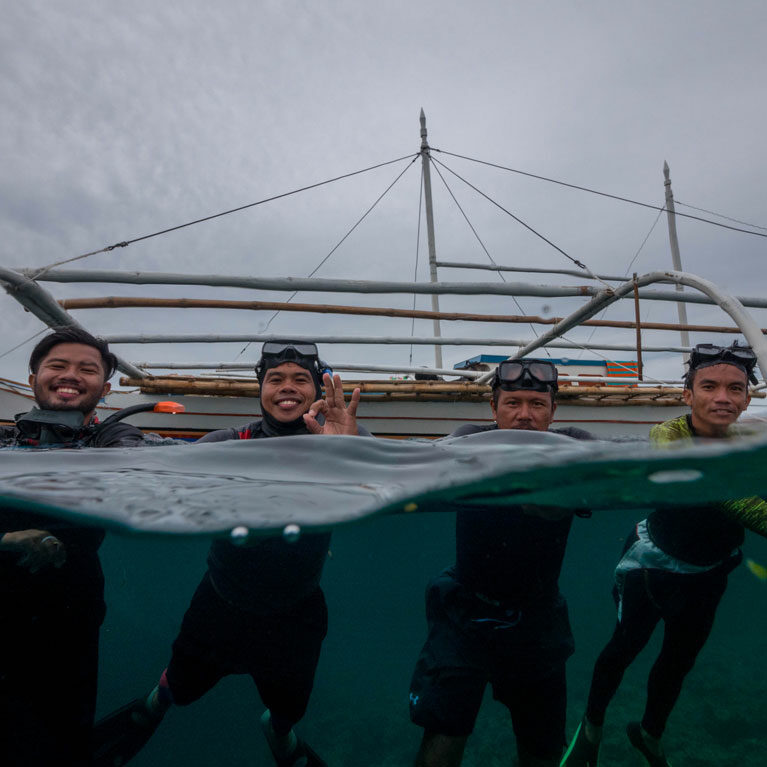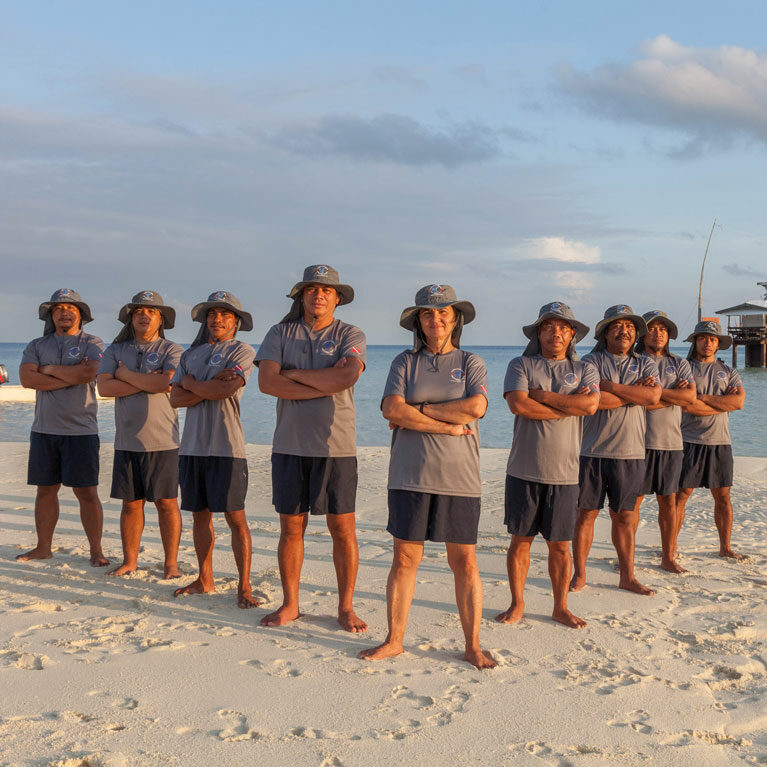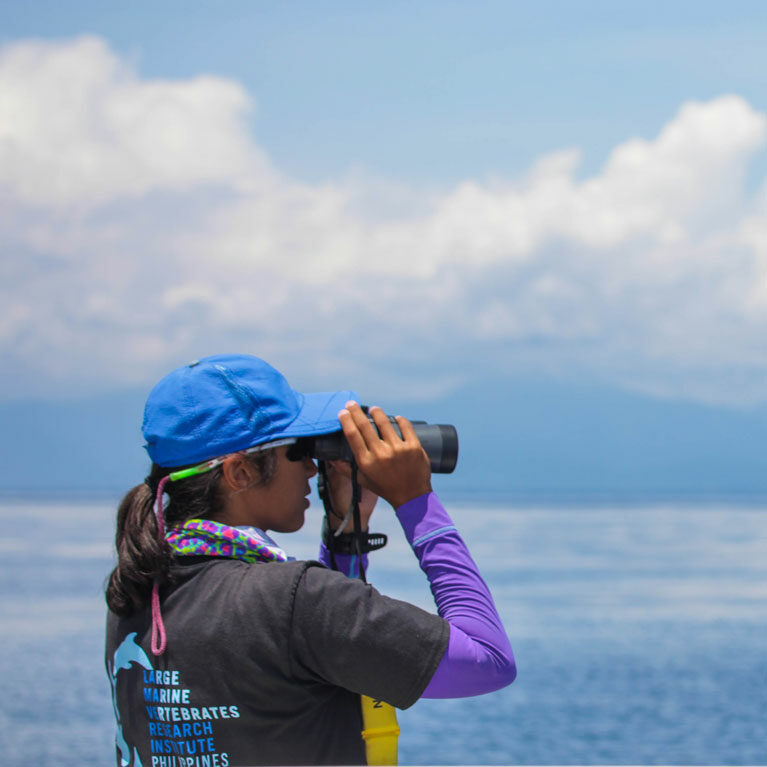Sharks of the Sulu Sea
Sally is working with local researchers and communities in the Palawan province to produce a film that will advance protection of the Philippines’ natural heritage. Her focus is on sharks and rays in the Sulu-Sulawesi Marine Ecoregion. The Sulu Sea, where the film is set, is both a site of incredible marine diversity and one of the region’s key fishing grounds. Sally will bring to communities stories of one of the world’s largest shark aggregations at Tubbataha Reefs Natural Park, the whale sharks and feeding aggregations of oceanic manta rays at Honda Bay, visions of Cagayancillio (the country’s largest marine protected area), and a newly-discovered reef manta ray cleaning station.
I am a conservationist and filmmaker, and an executive director of the Large Marine Vertebrates Research Institute Philippines, the largest NGO dedicated to the conservation of marine megafauna and their environment in the Philippines. As a passionate science communicator, I have worked with the BBC, National Geographic Channel, S4C, and PTS in diverse roles from associate producer, undercover filmmaker, and self-shooting presenter to a fixer for blue-chip series. I believe in conservation filmmaking as a tool for behavioral change and delivering stories that connect people and the environment. Although I started my career in conservation as a...



Sharks of the Sulu: Impact media campaign to support elasmobranch conservation in Palawan
To conserve sharks and rays in Palawan, Philippines, by enhancing local knowledge, community participation and government support through the production and screening of a 30-minute film and through an interactive impact campaign.
Shark and ray populations have declined throughout South-East Asia and, despite international and national protection for many species, are still being harvested locally by both commercial and small-scale fisheries every day, further driving the few remaining populations into local extinction. This campaign brings awareness of priority sites for sharks and rays identified in the province of Palawan to increase the buy-in of local communities and politicians to ensure these areas are protected.
Sharks are virtually absent on many of Asia’s coral reefs and the Philippines is no exception. Over a century of targeted and untargeted fishing, followed by direct exploitation in the 1980s and ’90s and a currently oversaturated open-access industry, has depleted Philippine waters. Even when sharks are not directly targeted, results from a rapid by-catch assessment conducted across the province of Palawan have revealed alarming rates of illegal and unreported shark and ray by-catch in small-scale fisheries. Despite this, there are a few glimmers of hope for the future of these species. Tubbataha Reefs Natural Park, a large, long-established and remote protected area, is an extraordinary site for reef sharks, hosting some of the highest densities recorded worldwide. However, research in the park has shown that even large reef-associated elasmobranchs like adult grey reef sharks, reef manta rays and tiger sharks make large-scale movements and need multiple specifically designed protected areas to ensure their survival. Meanwhile, the development of tourism in internationally important feeding sites for whale sharks and cleaning stations for manta rays are posing potential new threats to these species. The passing and implementation of legislation to protect four priority habitats is urgent to safeguard the future of elasmobranchs. This project will raise awareness about the value of sharks and rays and the threats they are facing and will identify and promote the removal of barriers to ensure their conservation in the province of Palawan, taking insight from Rare’s Principles of Pride and Theory of Change Model. The campaign will increase the buy-in of communities and government to protective measures for sharks and rays by producing and screening a 30-minute film that is expected to increase knowledge, shift attitudes and encourage communication and consultations with local stakeholders to identify barriers and solutions to protective measures.
This project uses a holistic approach to ensure the conservation of elasmobranchs in the province of Palawan in the Philippines by:
- Producing a 30-minute film led by local characters showcasing threats to sharks and rays and conservation success at a local level;
- Using the film as a tool to lobby local government units and the Palawan Council of Sustainable Development for the legal protection of priority areas for elasmobranchs and the regulation of interaction with marine wildlife by tourists, as well as other potential mitigation strategies;
- Organising workshops to increase local communities’ engagement and active participation in shark conservation and sustainable resource management in four priority habitats for sharks and rays;
- Promoting STEM and shark conservation as a viable career option for early-career scientists and students from Palawan and nationwide.

